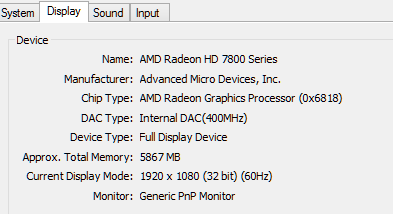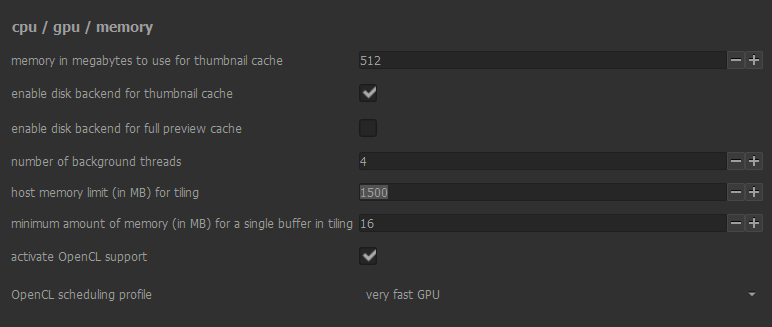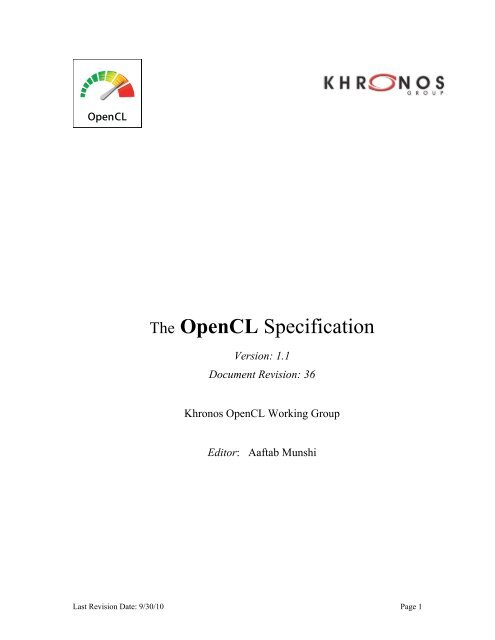OpenCL Error Codes (1.x & 2.x)
Unraveling the Enigmatic Realm of OpenCL Error Codes (1.x & 2.x)
Enum Values for OpenCL Error Codes
- CL_SUCCESS: The operation completed successfully.
- CL_DEVICE_NOT_FOUND: No OpenCL devices were found.

- CL_DEVICE_NOT_AVAILABLE: The specified OpenCL device is not available.
- CL_COMPILER_NOT_AVAILABLE: There is no OpenCL compiler available.
- CL_MEM_OBJECT_ALLOCATION_FAILURE: Failed to allocate memory for a buffer or image object.
- CL_OUT_OF_RESOURCES: There are not enough resources available to execute the kernel.

- CL_OUT_OF_HOST_MEMORY: Failed to allocate memory on the host.
- CL_PROFILING_INFO_NOT_AVAILABLE: Profiling information is not available.
- CL_MEM_COPY_OVERLAP: Source and destination memory objects overlap.
- CL_IMAGE_FORMAT_MISMATCH: The image format does not match the format of the OpenCL context.

Extensions and References for OpenCL Error Codes
When working with OpenCL, it is important to understand the various error codes that can occur. These error codes provide valuable information about the issues you may encounter during programming.
For a comprehensive list of OpenCL error codes, including both 1.x and 2.x versions, you can refer to the OpenCL specification documentation. This documentation provides detailed descriptions of each error code, allowing you to quickly identify and troubleshoot any issues.
Additionally, there are several resources available online that provide extensions and references for OpenCL error codes. Websites such as streamhpc and GitHub offer valuable insights and solutions for common OpenCL errors.
To efficiently handle OpenCL error codes in your code, you can use the OpenCL Error Flag Function clGetEventInfo. This function allows you to retrieve the error code associated with a specific event, enabling you to handle errors programmatically.
By familiarizing yourself with OpenCL error codes and utilizing available resources, you can effectively diagnose and resolve any issues that may arise during your OpenCL programming journey.
Excluded Platforms and Design Files for OpenCL Error Codes
When working with OpenCL Error Codes (1.x & 2.x), it is important to be aware of the excluded platforms and design files. These platforms and files are not supported and should not be used when handling OpenCL error codes.
Some common error codes include CL_DEVICE_NOT_FOUND, CL_SUCCESS 0, CL_INVALID_COMMAND_QUEUE, and CL_MEM_OBJECT_ALLOCATION_FAILURE. To avoid encountering these errors, ensure that you are using valid device types, valid context and command queues, and valid memory objects.
Additionally, be cautious of errors such as CL_IMAGE_FORMAT_NOT_SUPPORTED, CL_BUILD_PROGRAM_FAILURE, CL_INVALID_DEVICE, and CL_INVALID_VALUE. These errors can occur when dealing with image formats, program building, device IDs, and parameter values.
cpp
#include
#include
int main() {
cl_int errorCode = CL_INVALID_KERNEL_ARGS; // Example OpenCL error code
switch (errorCode) {
case CL_SUCCESS:
std::cout << "Success!" << std::endl;
break;
case CL_DEVICE_NOT_FOUND:
std::cout << "Device not found!" << std::endl;
break;
case CL_INVALID_KERNEL_ARGS:
std::cout << "Invalid kernel arguments!" << std::endl;
break;
// Add more error code cases as needed
default:
std::cout << "Unknown error!" << std::endl;
break;
}
return 0;
}
In this example, we define an OpenCL error code (`CL_INVALID_KERNEL_ARGS`) and use a switch-case statement to handle different error scenarios. You can expand this code by adding more error code cases and appropriate error messages based on the OpenCL specification or vendor-specific documentation.
Please keep in mind that this is a simplified example and might not cover all possible error codes or handle them in the most comprehensive way. It's crucial to refer to the OpenCL specification or documentation specific to your hardware platform for accurate handling of error codes.
Command Line Arguments for OpenCL Error Codes
OpenCL Error Codes (1.x & 2.x)
| Error Code | Description | Command Line Argument |
|---|---|---|
| -1 | CL_DEVICE_NOT_FOUND | -1 |
| -2 | CL_DEVICE_NOT_AVAILABLE | -2 |
| -3 | CL_COMPILER_NOT_AVAILABLE | -3 |
| -4 | CL_MEM_OBJECT_ALLOCATION_FAILURE | -4 |
| -5 | CL_OUT_OF_RESOURCES | -5 |
| -6 | CL_OUT_OF_HOST_MEMORY | -6 |
| -7 | CL_PROFILING_INFO_NOT_AVAILABLE | -7 |
| -8 | CL_MEM_COPY_OVERLAP | -8 |
| -9 | CL_IMAGE_FORMAT_MISMATCH | -9 |
| -10 | CL_IMAGE_FORMAT_NOT_SUPPORTED | -10 |

